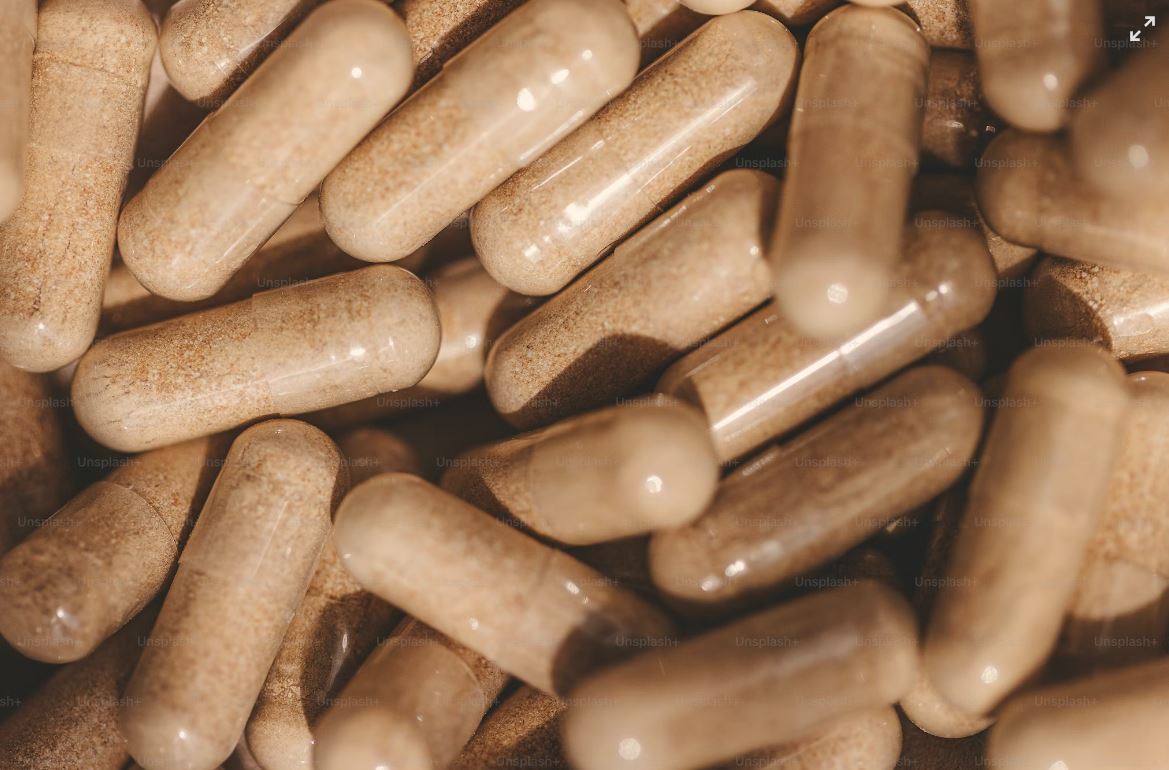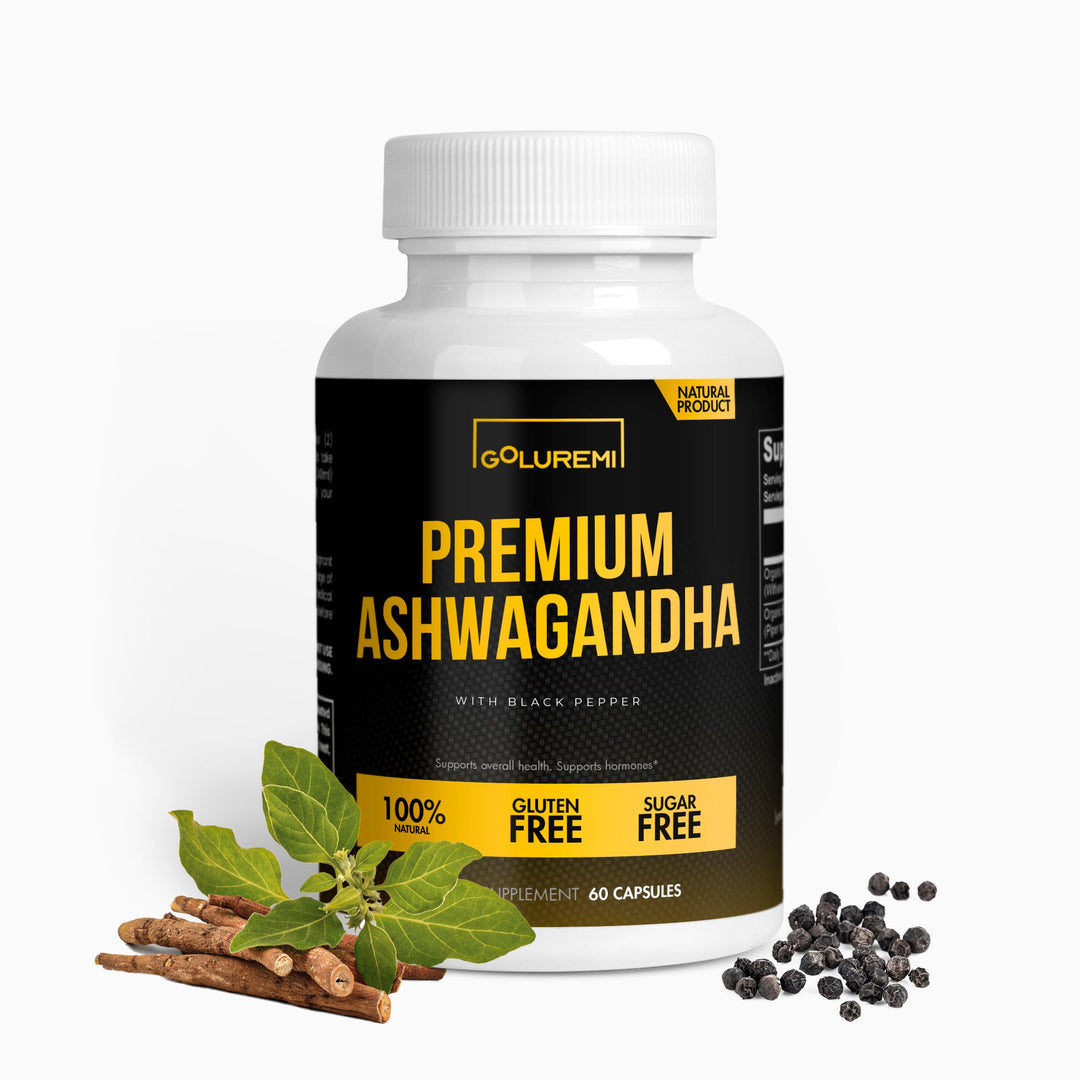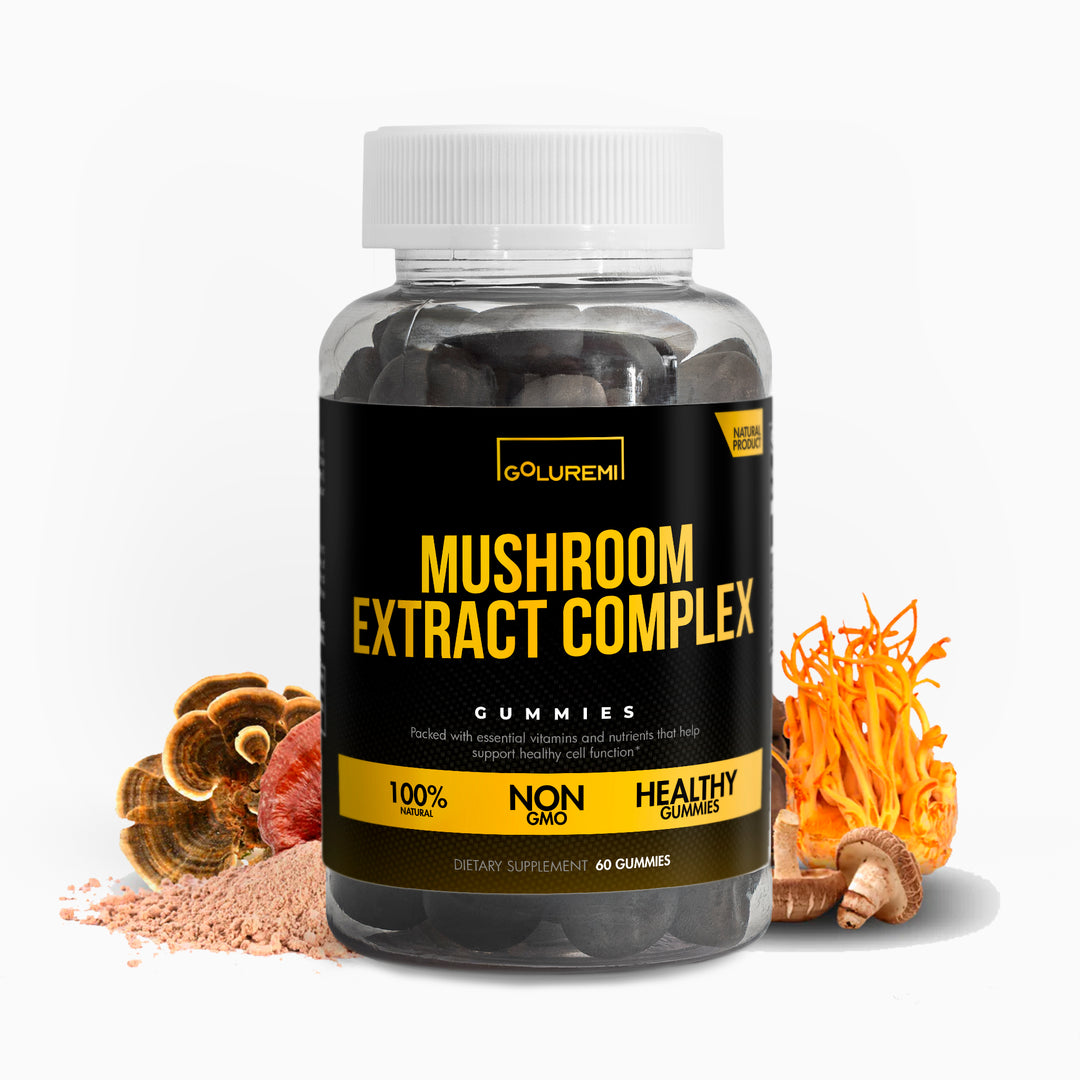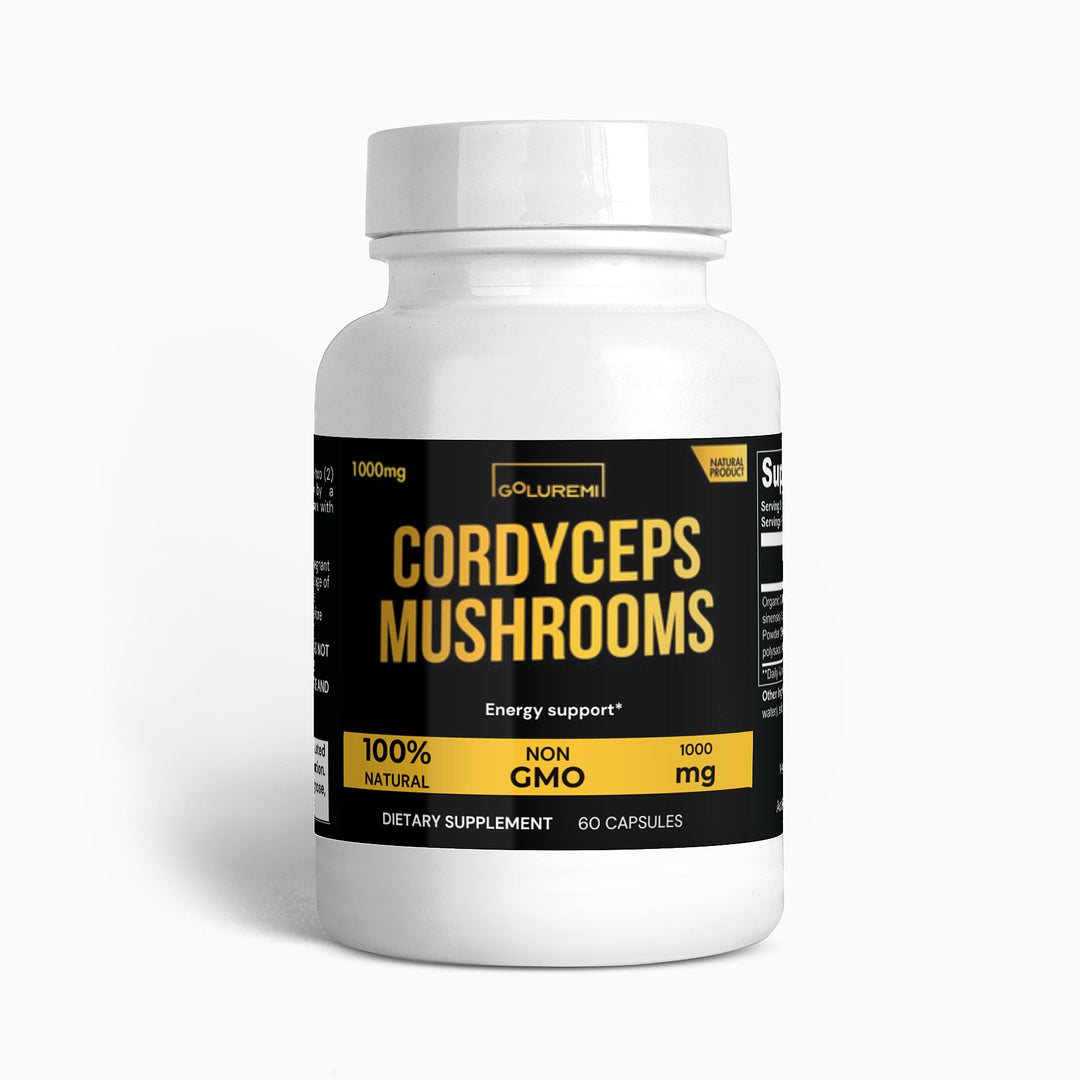9 Incredible Health Benefits of Ashwagandha


Health Benefits of Ashwagandha: Ashwagandha, also known as Withania somnifera, is an herb that has been used for thousands of years in Ayurvedic medicine to promote health and well-being.
It is also commonly known as Indian ginseng or winter cherry. The plant is native to India and Southeast Asia, and its extracts and powders are derived from the leaves and root. Ashwagandha is classified as an adaptogen, which means it helps the body cope with stress.
Research has shown that ashwagandha has many potential health benefits. Here are nine proven health benefits of ashwagandha:
1. Ashwagandha Reduces stress and anxiety
Ashwagandha is perhaps best known for its ability to reduce stress and anxiety. Studies have shown Health Benefits of Ashwagandha that ashwagandha supplements can help control mediators of stress, such as cortisol and heat shock proteins.
Additionally,
it reduces the activity of the hypothalamic-pituitary-adrenal axis, which is responsible for regulating the stress response.
In a small study, 58 participants who took 250 or 600 mg of ashwagandha extract for eight weeks had significantly reduced perceived stress and levels of the stress hormone cortisol compared to those who took a placebo. Another study found that 240 mg of ashwagandha extract per day for 60 days had significant reductions in anxiety compared to the placebo group.
However, a recent review of studies concluded that there is not enough evidence to form a consensus on the most appropriate dosage and form of ashwagandha for treating stress-related neuropsychiatric disorders such as anxiety.
2. Improves athletic performance
Research has shown that ashwagandha may have beneficial effects on athletic performance and may be a worthwhile supplement for athletes.
One analysis of research included 12 studies in men and women who took ashwagandha doses between 120 mg and 1,250 mg per day. The results suggest the herb may enhance physical performance, including strength and oxygen use during exercise.
An analysis of five studies found that taking ashwagandha significantly enhanced maximum oxygen consumption (VO2 max) in healthy adults and athletes. VO2 max is the maximum amount of oxygen a person can use during intense activity.
Having optimal VO2 max is important for athletes and nonathletes alike. Low VO2 max is associated with increased mortality risk, while higher VO2 max is associated with a lower risk of heart disease.
Additionally, ashwagandha may help increase muscle strength. In one study, male participants who took 600 mg of ashwagandha per day and participated in resistance training for eight weeks had significantly greater gains in muscle strength and size compared to a placebo group.
3. Ashwagandha Reduces symptoms of some mental health conditions
Some evidence suggests that ashwagandha may help reduce symptoms of other mental health conditions, including depression, in certain populations. In one study, researchers looked at the effects of ashwagandha in 66 people with schizophrenia who were experiencing depression and anxiety. They found that participants who took 1,000 mg of ashwagandha extract daily for 12 weeks had greater reductions in depression and anxiety than those who took a placebo.
What's more,
findings from another study suggest that taking ashwagandha may help improve total symptoms and perceived stress in people with schizophrenia. Limited research from 2013 also suggests that ashwagandha may help improve cognitive impairment in people with bipolar disorder. However, more research is needed.
Additionally,
a study from 2012 found that stressed adults who took 600 mg of ashwagandha extract per day for 60 days reported a 77% reduction in symptoms of depression, while the placebo group reported a 5% reduction.
4. It help boost testosterone and increase fertility in men
Ashwagandha supplements have been studied for their potential benefits in boosting male fertility and increasing testosterone levels. Health Benefits of Ashwagandha in overweight men. In one study, overweight men between the ages of 40 and 70 who experienced mild fatigue took ashwagandha extract or a placebo daily for 8 weeks.
The group that received the ashwagandha treatment showed an 18% greater increase in DHEA-S, a sex hormone involved in testosterone production, and a 14.7% greater increase in testosterone compared to the placebo group. Another review of four studies found that ashwagandha treatment significantly increased sperm concentration, semen volume, and sperm motility in men with low sperm count, as well as sperm concentration and motility in men with normal sperm count.
However,
more high quality studies are needed to confirm the potential benefits of ashwagandha for male fertility.
5. Reduce blood sugar levels
There is some evidence to suggest that ashwagandha may have benefits for people with diabetes or high blood sugar levels. A review of 24 studies, which included 5 clinical studies involving people with diabetes, found that treatment with ashwagandha significantly reduced blood sugar levels, hemoglobin A1c (HbA1c), insulin, blood lipids, and markers of oxidative stress.
It is believed that specific compounds within ashwagandha, such as withaferin A (WA), have potent antidiabetic activity and may aid in stimulating the cells to absorb glucose from the bloodstream.
However, it is important to note that research on this topic is limited, and further well-designed studies are needed to determine the effectiveness and safety of ashwagandha for blood sugar control in individuals with diabetes or high blood sugar levels.
6. Ashwagandha Reduce inflammation
Ashwagandha may have anti-inflammatory properties due to its compounds, including WA, which target inflammatory pathways in the body. Animal studies have shown that WA can reduce levels of inflammatory proteins such as interleukin-10 (IL-10). Some evidence also suggests that ashwagandha may help reduce inflammatory markers in humans. For instance, a study found that ashwagandha extract consumption for 60 days led to significant reductions in C-reactive protein in adults experiencing stress. Another study involving people with COVID-19 who were given an Ayurvedic drug containing ashwagandha and other herbs twice per day for 7 days found that this reduced participants' levels of inflammatory markers CRP, IL-6, and TNF-α compared with a placebo. The drug also contained other ingredients such as giloy ghanvati, swasari ras, and tulsi ghanvati. However, research on ashwagandha's potential effects on inflammation is currently limited.
- Ashwagandha may have anti-inflammatory properties
- WA, a compound in ashwagandha, targets inflammatory pathways in the body
- Animal studies have shown that WA can reduce levels of inflammatory proteins such as IL-10
- A study found that ashwagandha extract consumption for 60 days led to significant reductions in C-reactive protein in adults experiencing stress
- Another study involving people with COVID-19 who were given an Ayurvedic drug containing ashwagandha and other herbs twice per day for 7 days found that this reduced participants' levels of inflammatory markers CRP, IL-6, and TNF-α compared.
7. Improve brain function, including memory
Taking ashwagandha may have potential benefits for cognitive function, including memory. Some studies have shown early evidence of these benefits, particularly in certain populations such as older adults with mild cognitive impairment and individuals with schizophrenia. Here are the specific cognitive functions it may benefit:
- Executive functioning
- Attention
- Reaction time
- Performance on cognitive tasks
A study involving 50 adults found that taking 600 mg of ashwagandha extract daily for 8 weeks led to significant improvements in immediate and general memory, attention, and information-processing speed compared to taking a placebo. Researchers suggest that this may be due to the antioxidant effects of compounds found in ashwagandha, such as WA, on the brain.
However, more research is needed to draw strong conclusions about the benefits of ashwagandha on cognitive health.
8. Help improve sleep
Ashwagandha is a popular supplement used by many people to promote restful sleep. There is some evidence to suggest that it may help with sleep issues. Here are some key findings:
- In a study of 50 adults aged 65-80, taking 600 mg of ashwagandha root per day for 12 weeks significantly improved sleep quality and mental alertness upon waking compared to a placebo treatment.
- A review of five high-quality studies found that ashwagandha had a small but significant positive effect on overall sleep quality.
- Taking ashwagandha reduced anxiety levels and helped people feel more alert when they woke up.
- Results were more pronounced in people with insomnia and in those who took more than 600 mg daily for 8 weeks or longer.
Overall, these findings suggest that ashwagandha may be a useful supplement for those looking to improve their sleep quality. However, more research is needed to fully understand its effects on sleep and to determine the optimal dosage and duration of treatment.
9. Safe and widely available
Ashwagandha is generally considered safe for most people. In fact, a review of 69 studies found that ashwagandha root appears to be safe and effective in managing certain health conditions such as stress, anxiety, and insomnia.
One study even showed that taking 600mg of ashwagandha daily for 8 weeks was safe and did not cause any adverse health effects in participants. However, there are certain groups of people who should avoid taking ashwagandha, such as pregnant individuals, those with hormone-sensitive prostate cancer, and those taking certain medications such as benzodiazepines, anticonvulsants, or barbiturates. Additionally, ashwagandha may affect the thyroid, so those with thyroid disease should check with a healthcare professional before taking it.
Some side effects have been reported in people taking ashwagandha supplements, including upper gastrointestinal discomfort, drowsiness, and diarrhea. Thus, it is important to consult with a healthcare professional before taking ashwagandha to determine the appropriate dosage for your needs.
If you are interested in trying ashwagandha, Goluremi Premium Endurance Ashwagandha may be a good option. This supplement is made from root extracts and is free from chemicals and preservatives. It is also farmed organically, sugar-free, and gluten-free. Furthermore, it is divided into 60 capsules for easy dosage maintenance.
As a bonus,
first-time buyers can receive a 10% discount on their purchase by using the coupon code GOL10. This product can be purchased from various retailers, including health food stores and vitamin shops.










